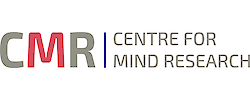VR-based and eyetracking-assisted attention refocusing training for ADHD patients
ADHD (Attention Deficit Hyperactivity Disorder) is one of the most common mental disorders, whose main symptoms include hyperactivity, impulsiveness and inattention. The diagnosis of this disorder is mainly made by interviewing the patients and, if necessary, their relatives, and then analysing their behaviour and problems. Occasionally, neuropsychological tests are also used to obtain information about cognitive deficits. Here, however, there is the problem of a relatively low ecological validity. Most of the neuropsychological test procedures currently in existence are based on abstract tasks that are not very close to reality and everyday life.
A possible solution to this problem could be virtual reality (VR). This technology can be used to simulate a three-dimensional, immersive and interactive environment in which realistic testing is possible. The aim of this third-party funded project, funded by MEDICE Arzneimittel Pütter GmbH & Co KG, is to implement a standardised, ecologically valid, multimodal diagnostic tool for ADHD in adulthood based on VR. For this purpose, a virtual seminar room is currently being developed in which the test person solves a virtual neuropsychological task while various visual and auditory distractions take place within the seminar room. In this way, the attention performance or distractibility of ADHD patients and healthy control subjects will be compared in several consecutive studies. During the task processing in the virtual seminar room, eye tracking and EEG data are also collected. Thus, ADHD-specific abnormalities can be measured at the behavioural, electrophysiological and oculomotor level to enable multimodal diagnostics.
Principal Investigators:
Dr. Niclas Braun ()
Prof. Dr. Alexandra Philipsen
Other project participating investigators at the University Hospital Bonn:
Prof. Dr. Silke Lux
Annika Wiebe
Benjamin Selaskowski

















